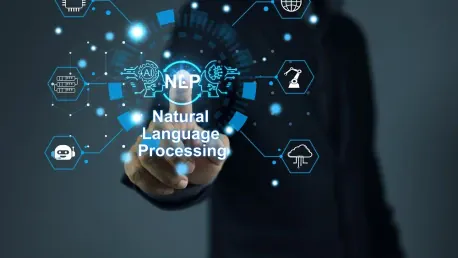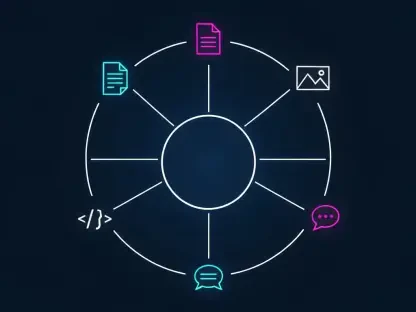Natural language processing (NLP) has revolutionized the way we interact with technology, enabling machines to understand, interpret, and even generate human language. With the growing reliance on virtual assistants, chatbots, and AI-powered translation tools like ChatGPT, Gemini, or Claude, the demand for NLP engineers is skyrocketing. These professionals operate at the intersection of artificial intelligence, machine learning, and linguistics, creating algorithms that allow computers to communicate effectively in natural language. If you are drawn to this dynamic field, follow these steps to become a skilled NLP engineer in today’s AI landscape.
1. Acquire Relevant Education
Starting your journey to becoming an NLP engineer begins with a strong educational foundation. Most successful NLP engineers possess at least a bachelor’s degree in computer science, artificial intelligence, data science, or a related field. A well-rounded education provides the essential skills and knowledge required to excel in NLP. Courses in statistics, machine learning, and natural language processing are particularly beneficial, as they offer insights into the algorithms and models used in NLP tasks.
Advanced education can also give you a competitive edge in the job market. Completing a master’s degree in AI, linguistics, or computational linguistics can deepen your understanding of the field and expose you to cutting-edge research and technologies. Moreover, some aspiring NLP engineers pursue a PhD to specialize in niche areas, such as deep learning for NLP or semantic analysis. This level of expertise can open doors to research positions and highly specialized roles within the industry.
2. Develop Programming and Machine Learning Skills
The next crucial step is mastering programming and machine learning skills, which are indispensable for NLP engineers. Proficiency in Python is essential, given its extensive libraries and frameworks tailored for NLP, such as NLTK, spaCy, and Transformers. Additionally, knowledge of Java and C++ can be advantageous, as these languages are often used in performance-critical applications and legacy systems.
To build and optimize NLP models, you should be well-versed in machine learning frameworks like TensorFlow and PyTorch. These tools enable you to develop sophisticated neural networks and other machine learning models necessary for tasks such as text classification, sentiment analysis, and language translation. Practical experience with these frameworks, through online courses or coding boot camps, is invaluable. Programming assignments and projects that involve building and training machine learning models will help solidify your expertise in this area.
3. Understand NLP Concepts and Methods
Gaining a thorough understanding of NLP concepts and techniques is fundamental to becoming a successful NLP engineer. Start by familiarizing yourself with core NLP tasks, such as text classification, named entity recognition, and sentiment analysis. These tasks form the building blocks of many NLP applications and require a good grasp of data preprocessing techniques, including tokenization, stemming, lemmatization, and part-of-speech tagging.
Delving deeper into advanced NLP methods, such as semantic parsing and machine translation, can further enhance your skill set. Courses that cover these topics in detail will help you understand the intricacies of language models and their applications. Additionally, working with cutting-edge NLP libraries and frameworks like Hugging Face Transformers can provide hands-on experience with state-of-the-art models, such as BERT and GPT, which are used in many modern NLP systems.
4. Obtain Practical Experience
Practical experience is key to honing your skills and demonstrating your expertise to potential employers. Engaging in personal or open-source projects allows you to apply the concepts and techniques you’ve learned in real-world scenarios. For instance, you could build a chatbot, develop a sentiment analysis tool, or create a language translation model. These projects showcase your ability to tackle complex NLP problems and can be invaluable additions to your portfolio.
Participating in NLP competitions on platforms like Kaggle offers another excellent way to gain practical experience. These competitions challenge you to solve real-world problems using machine learning and NLP techniques, providing an opportunity to test your skills against a global community of data scientists and engineers. Moreover, sharing your projects on GitHub can further demonstrate your capabilities and attract the attention of potential employers. It’s an effective way to build a professional online presence and showcase your contributions to the broader NLP community.
5. Achieve Relevant Certifications
Earning relevant certifications can validate your expertise and make your resume stand out. Several reputable certifications are available for aspiring NLP engineers. The Stanford NLP Specialization, for example, covers fundamental NLP topics, including text processing, sentiment analysis, and deep learning applications. This certification provides a solid foundation in NLP and is highly regarded in the industry.
Another popular certification is the Deep Learning Specialization by Andrew Ng, which offers a comprehensive look at neural networks and their applications in NLP. This course covers essential concepts such as sequence models, attention mechanisms, and transformer networks, which are critical for building advanced NLP models. Similarly, Udacity’s NLP Nanodegree provides hands-on training in NLP techniques, from basic text processing to deep learning models, offering a practical approach to learning NLP skills. Achieving these certifications can significantly enhance your credentials and demonstrate your commitment to the field.
6. Continue Learning and Stay Informed
NLP is a rapidly evolving field, and staying current with the latest advancements is crucial for long-term success. Regularly following the latest research papers, attending NLP conferences, and engaging in online NLP communities are effective ways to stay informed. These activities expose you to new techniques, algorithms, and applications, helping you keep your skills up-to-date and relevant.
Continuous learning can also involve pursuing additional formal education, such as a master’s or PhD, particularly if you’re aiming for a research or highly specialized role. Advanced degrees provide opportunities to engage in cutting-edge research, collaborate with leading experts, and contribute to the development of new NLP technologies. Additionally, participating in workshops, webinars, and online courses can help you stay updated with industry trends and advancements, ensuring that you remain at the forefront of this dynamic field.
Conclusion
Natural language processing (NLP) has significantly transformed our interaction with technology by enabling machines to understand, interpret, and even generate human language. The increasing use of virtual assistants, chatbots, and AI-driven translation tools such as ChatGPT, Gemini, or Claude has led to a soaring demand for skilled NLP engineers. These experts work at the intersection of artificial intelligence, machine learning, and linguistics, developing algorithms that enable computers to effectively communicate using natural language. If you are attracted to this thrilling and evolving field, here are the steps to becoming a proficient NLP engineer in today’s AI-driven environment.
First, obtain a strong foundation in computer science, focusing on programming languages like Python and Java, as well as gaining proficiency in data structures and algorithms. Then, dive into machine learning and deep learning techniques, which are essential for NLP. Familiarize yourself with linguistics to understand the subtleties of human language. Finally, work on practical projects and stay updated with the latest advancements, as the field of NLP is continuously evolving.









